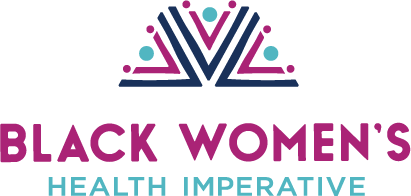For the Black women whose bodies have always been the target of disparate treatment and whose lives are at stake through each change to our current healthcare system. You deserve more.
I never met her, but I love her. Cervical cancer cut Cleo Elizabeth Berry’s life short. She raised 5 Black boys and 1 Black girl on her own — first in St. Louis, Missouri then in South Central, Los Angeles. From pictures and descriptions from my dad, I’ve gathered that she was pretty and thin with legs that made heads turn. What she lacked in physical size, she made up for in personality. Everyone who knew her described her as “outgoing”, “spontaneous”, and “vivacious.”
She loved to read, dance, and talk her talk. She was the type of person that would give to others without question. My aunt says that sometimes she would come home to people sleeping on the floor or couch because they needed a place to stay. No matter what she was personally struggling with, be it an addiction or abuse, she made sure her family was taken care of. It was hard not to feel loved and protected in her presence from what I heard. I wish I could have felt that love in person because I know it was real.
This woman was my grandmother and I am lifting her up for a very specific reason. I am writing not only to acknowledge her vibrant life, but also to reflect on her almost entirely preventable death. Mortality from cervical cancer in the United States is highest among Black women and women of low socioeconomic status. My grandmother experienced, first hand, a combination of institutionalized racism, discrimination, and a lack of access to quality healthcare.
As we see numerous attacks on affordable healthcare, which limit access to affordable preventative services, and proposed changes to health care screening guidelines, it is critical, now more than ever, that we work to eliminate the disparities we see in cervical cancer diagnoses and deaths by advocating for policies that seek to expand and increase access to preventative services such as cervical cancer screenings.
When my grandmother visited the doctor for a cervical cancer screening in the 1980’s, the correlation between Human Papilloma Virus (HPV) and cervical cancer was still considered a new discovery for the health community. My grandmother struggled to navigate the health care system with no health insurance. This meant that she likely did not have access to screenings nor did she have the opportunity to co-test for HPV and cervical cancer.
Studies show that more cancers are found with screenings that include co-testing, than with either test done separately. If my grandmother, at 30, had been screened using the proposed 2017 USPSTF guidelines, medical providers would miss her cancer, just as they did decades ago. When Black women are still twice as likely to die from cervical cancer as white women, co-testing provides necessary preventative care for women with the highest risk of diagnosis.
I have talked to family members about what made Cleo Elizabeth Berry so special. Fiercely independent; she never wanted to be a burden to anyone. I can imagine this trait carried over into her dealings with her health. My aunt says she would go to the doctor, come back home, and not say a word. There is much that is still unclear about her cancer because my grandmother did not share a lot about this personal part of her life. What is clear is that she needed adequate preventative care that took into consideration all the intersections of her identity.
I picture her as a young, Black mother of 6 living and surviving in poverty, with her entire life ahead of her. Women like Cleo still exist today and face significant barriers to the screening they need. My grandmother lost her battle with cervical cancer at the age of 48 and with it, her potential to touch this world in an even greater way. I cannot risk another granddaughter having to write a piece like mine simply because she was unable to access life-saving, preventative cancer screenings.
So, that’s why I choose to advocate for Black women’s access to these screenings, and I ask that you join me and do the same. I’m doing it for Cleo, who are you doing it for?
 Rebecca Berry, Esq. is the Legal and Policy Fellow at the Black Women’s Health Imperative.
Rebecca Berry, Esq. is the Legal and Policy Fellow at the Black Women’s Health Imperative.


